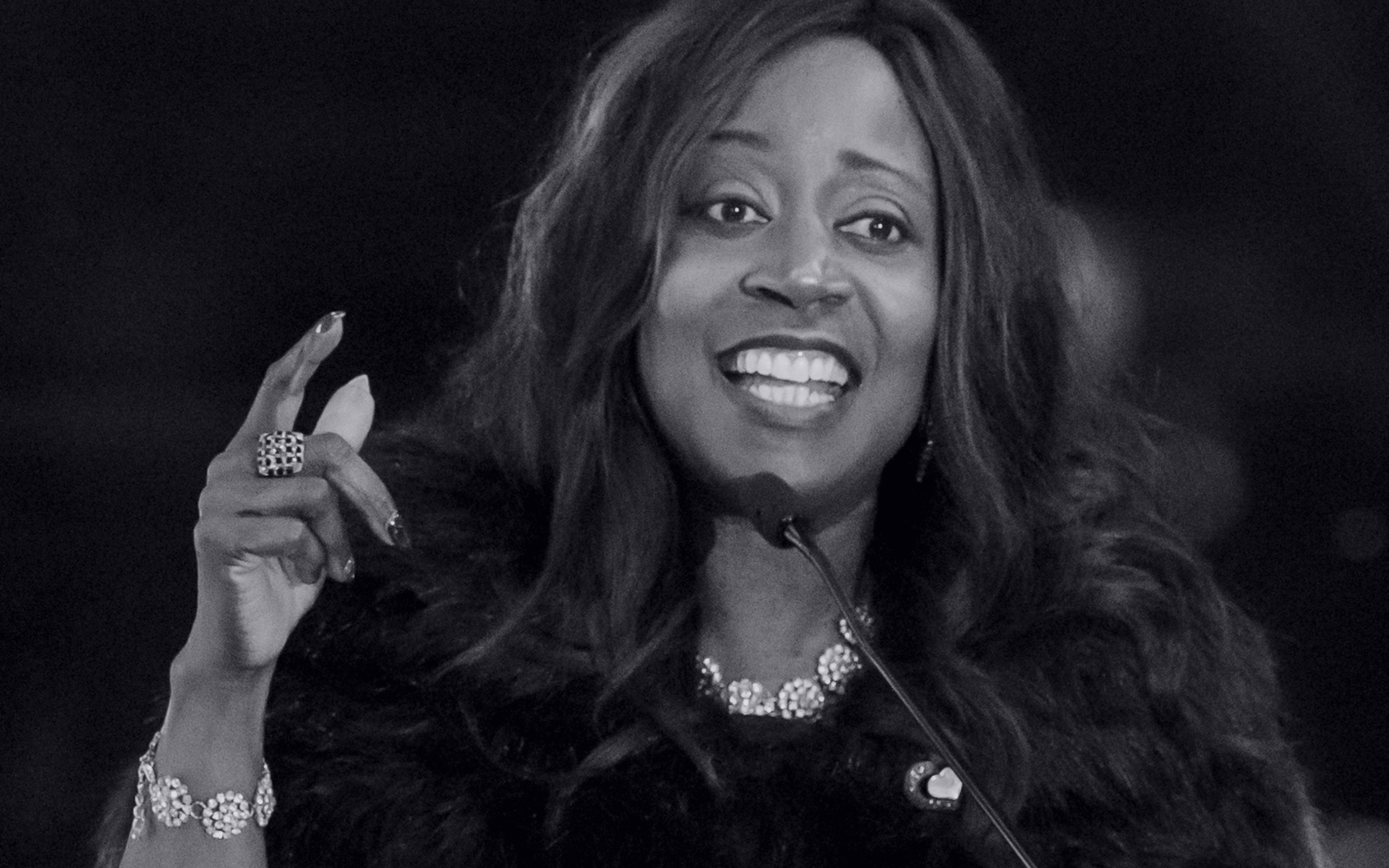Hello, I am Bernie Davies and I am thrilled to be the new EDI and Entrepreneurship Columnist for Legal News Wales – and what a time indeed it is to embark upon this exciting role!
Last week, on the 27th November, 2024, I witnessed a most historic and heart-warming moment in history for Cardiff & District Law Society. The ‘gong’ of presidency was not just passed from one female President to a new female President. It was also passed from the outgoing the newly ‘gonged’ President to a…wait for it…non-lawyer and female Vice President and then, she passed it on to the newly appointed, female Junior Vice President! Congratulations are definitely in order for Trish D’Souza, Cardiff and District Law Society’s President, Emma Waddingham, Vice President and Julia Reynolds Junior Vice President!
Why am I recounting this? Surely, they have their own marketing team, and by now the news is out (it is, click here). I am mentioning this as I think it is quite fitting that this historic and groundbreaking achievement…yes, it is an achievement, happened right here in the heart of the capital city of Wales, where new life has been breathed into diversity, equity, inclusion and belonging.
As the Founder of Mastering Diversity Conference and Awards, I have had the privilege of being at the pulse of all things EDI in Wales and beyond. I have witnessed very progressive attitudes and a shift towards the understanding that true mastery of diversity is not indeed rocket science. It is about going back to basics. It is a humanity matter. Remember that race? The Human Race? When was the last time we’ve heard that word bandied about? Why is that not trending? Who truly stands to lose or gain from us forgetting that we are in fact one big, global family and ‘we are only’…as the cliché (a very wise cliché) says… ‘as strong as our weakest link’.
Now, I am by no means saying as ladies, we are weak. I am saying however, that we have been marketed as such. Harking back to the Ted Talk of Chimamanda Ngozi Adiche, women have definitely been victim to ‘the danger of the single story’ but we are changing that narrative. Moments like Cardiff and District Law Society’s AGM and leadership appointments are writing a different story.
If we look back to 2020 when the UK Treasury commissioned Natwest Bank’s then CEO Alison Rose to lead an independent review of female entrepreneurship, the report interestingly asserted (and I quote from my book – Mastering Diversity: We Go Together or not at all), “that if women started and scaled new businesses at the same rate as men, up to £250bn of new value could be added to the UK economy. The 2022 report update was promising as it stated, that “more than 140,000 companies were established by all-women teams” in 2021 and the figure was set to grow by a third each year.
Interestingly, the Federation of Small Businesses states on its website that during that same period, “between 2021 and 2022 the number of private sector businesses decreased by 86,000 (6%) in England and by 1,000 (<1%) in Scotland, whilst increasing by 11,000 (5%) in Wales and by 4,000 (4%) in Northern Ireland.” Food for thought, and well done Wales!
So what do we make of that? I have not had access to data that would enable me to identify the composition in terms of gender of the 86,000 businesses that closed between 2021-2022 but I am however thrilled to hear about the 140,000 new female founders and the 11% increase in SMEs in Wales, which has been my home since 2006.
I am also thrilled to have read that the February 2023 Rose Review update highlights that somewhere in the region of 17,500 16- 25 year old females founded new businesses in 2023. That is 22 times greater than in 2018.
A report by the Federation of Small Businesses on ‘SMEs and The Economy‘ states that, “SMEs account for 99.9% of the business population (5.5 million businesses) SMEs account for three-fifths of the employment and around half of turnover in the UK and that half of the business population are solopreneurs…”
In that makeup of SMEs, female founded businesses are in the minority. If we are dependent within our economy on SMEs, it makes it even more important to encourage and invest in female founders.
It seems that diversity in business is imperative when one looks at the data. I cannot help but begin to understand and to also, make it my mission to convince others that the UK economy demands diversity, inclusion, and all cognitive and innovative talent to thrive. We build together or not at all!
Briana van Strijp, CEO, Anthemis Group (where women comprise 57% of its decision makers and investment team AND 45% of its portfolio companies have founders who are female or of colour) strongly holds to the view that diverse teams are better equipped to outperform the market. I quote her from the Alison Rose Review 2022 update: “research shows that companies who embrace diversity really do achieve better results”.
These ideals will remain pipe dreams without backing and investment from funders. I am pleased to report that a new £22 million fund to support UK female fintech founders was launched after the 2019 Rose Review, in partnership with Barclays. A further £2 billion of ring-fenced funding was announced by NatWest for female entrepreneurs after the Rose Review. A definite start in the right direction.
Gender pay gap
What a minefield! There have been definite steps in the right direction indeed with equal pay for females in some sports. Nonetheless, in general, the gender pay gap in the UK is still a big issue, despite some slow progress over the years. As of 2024, full-time women earn, on average, 7% less than men. While it’s great that the gap has shrunk a little over the last decade, it’s still a long way from being truly fair. The gap tends to be bigger for older workers, especially those aged 40 and up, and it’s also more noticeable in higher-paying fields like skilled trades. On the flip side, jobs in areas like care and leisure have smaller gaps, but they also tend to be lower paying overall.
For women, the impact is threefold. Not only does it mean they take home less money, but it also affects long-term financial security – like pensions and career growth. More women are also working part-time, which tends to pay less than full-time roles, adding to the overall disparity. This all means that despite the small improvements, the journey towards pay equality remains a work in progress, with women still underrepresented in higher-paying, leadership roles.
The knock on effect being disempowerment and feeling under-valued and limited in options. It also begs the question as to why investors are not supporting women founders (as an alternative for them remaining in underpaid roles) to establish and sustain businesses which could potentially add billions to the UK economy? Wouldn’t everyone win in this scenario?
For those in the legal world, this underscores the ongoing need to champion workplace equality, both in pay and opportunity. I am pleased to see Cardiff and District Law Society taking the lead in this respect.
These are my thoughts and I am open to hearing how you feel about the sentiments expressed. I look forward to sparking more conversations as together we set about mastering diversity!
We go together or not at all!
For further information on Mastering Diversity Conference and Awards, and Bernie Davies’ events and training, visit masteringdiversity.com.



